
views
Foods That Could Help

Eat foods high in tryptophan. This amino acid helps your brain produce serotonin. Include high-tryptophan foods in your diet like chicken and turkey, nuts, fish, milk and cheese, and eggs. As long as you’re following a balanced, healthy diet, you’re probably getting all the tryptophan you need.
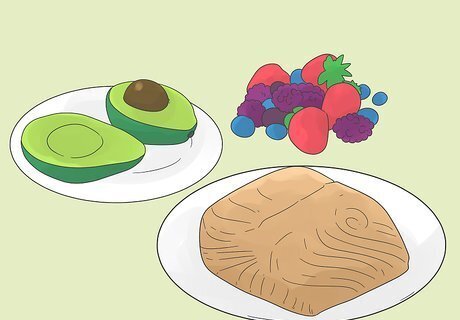
Increase your intake of omega-3s to help serotonin function better. Research suggests that omega-3s improve the function of serotonin in the brain and could stimulate further production. The main source for omega-3s are oily fish like salmon and sardines. However, vegetarians can get their daily serving from nuts, seeds, and vegetable oils. You could also take fish or algal oil (safe for vegetarians) supplements to increase your omega-3 intake.
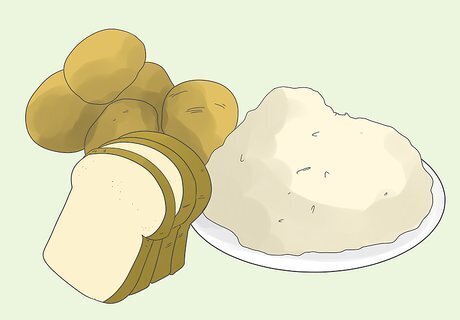
Consume enough carbohydrates to support serotonin release. Carbohydrates increase your brain’s release of serotonin, so make sure you get at least the daily servings of healthy carbs. Most people need about 1,000 calories from carbohydrates per day. Get your carbs from healthy sources like whole wheat products, brown rice, quinoa, fruits, and beans. Avoid processed sources like potato chips or candy. This is why people tend to crave carbs when they’re depressed or stressed. The brain is trying to boost its serotonin levels.
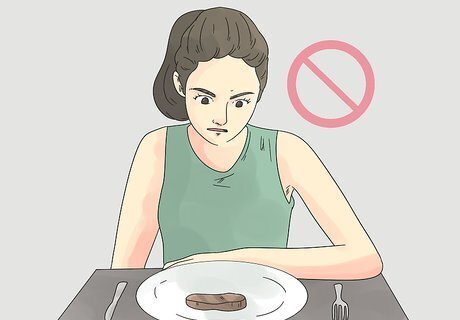
Avoid crash or extreme dieting. Your body needs a steady stream of calories to continue producing serotonin. If you follow extremely restrictive diets, serotonin production could fall and your mood will suffer. Also don’t skip meals. The resulting blood sugar crash can depress your mood as well.
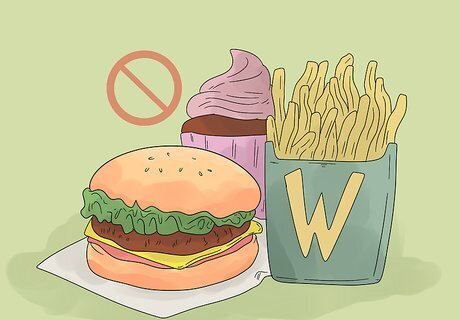
Cut out processed, fatty, and sugary foods. The exact link between unhealthy foods and depression isn’t quite clear. However, there does seem to be some link between the two. It’s best for your mental health, and overall health, to eliminate as many unhealthy foods from your diet as possible.
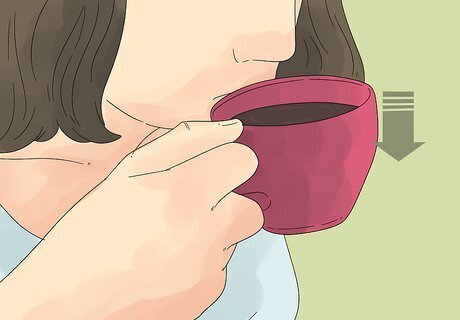
Drink caffeine in moderation. Like with junk food, the exact link between caffeine and serotonin isn’t entirely known. But there is some evidence that excessive caffeine drinking could block serotonin production. Keep your consumption within a moderate range, around 2-4 cups of coffee per day. Be very careful if you regularly use energy drinks. Some of these can contain 2 or 3 times the daily caffeine recommendation in a single serving. Stick with products that contain only a moderate amount of caffeine.
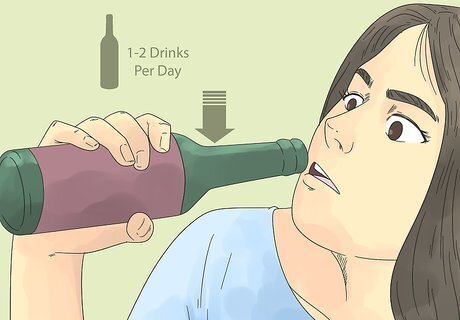
Limit your alcohol intake to prevent alcohol dependence. Alcohol acts on your serotonin receptors, which is why it makes you feel good. However, don’t rely on substances like this for serotonin. There is a serious risk for addiction, so keep your drinking limited to an average of 1-2 drinks per day. The same goes for illegal drugs. Several types can stimulate serotonin production, but there is a significant risk of addiction and health problems.
Lifestyle Remedies
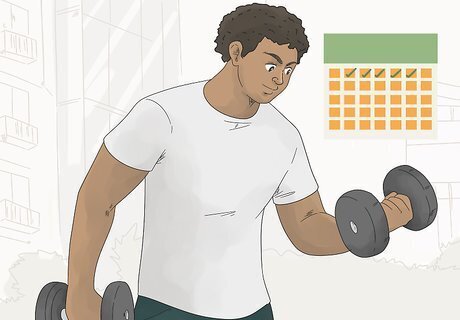
Exercise at least 5 days out of the week. Exercise is proven to release serotonin and other “feel good” hormones. Stay active and try to get 30-60 minutes of moderate exercise at least 5 days per week for the best results. Aerobic exercises are best for your overall health, but strength and weight training are good as well.

Get as much sunlight as possible. There is a clear link between sunlight and serotonin production. Try to get outdoors as much as possible and expose yourself to sunlight. A morning or afternoon walk is a great way to get some sunlight and exercise throughout the day.

Try to expose yourself to bright lights if you don’t get much sunlight. There is some evidence that bright lights can have a similar effect to sunlight. If you work indoors or live in an area where it’s often overcast, then expose yourself to bright lights as much as possible.
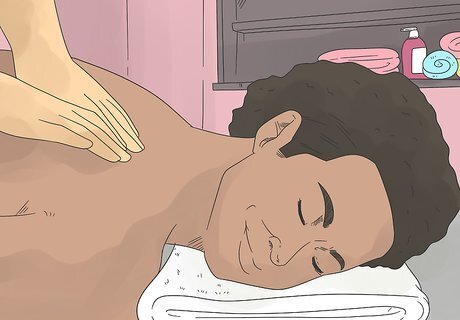
Have a massage to release tension. A massage not only feels good, but it also stimulates serotonin production. Try to have a regular massage if you’ve been feeling down lately. Scheduling a massage also gives you something to look forward to, which can raise your spirits.

Focus on happy memories to boost your mood. Happy thoughts could potentially release happy hormones. If you’re feeling depressed, try to think about good memories or experiences to raise your mood.

Hug your friends or loved ones. Physical touch also stimulates serotonin, just like with a massage. If you’ve had a bad day, a nice hug from someone can make you feel much better. Cuddling with a partner also produces serotonin. Remember not to hug or touch anyone without their permission.
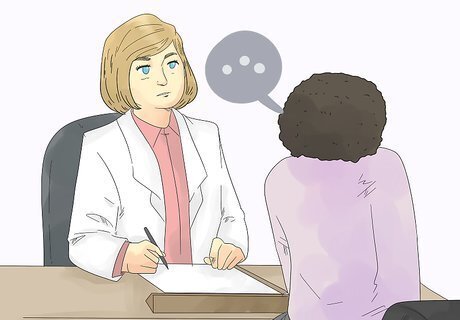
Talk your problems out with a counselor, friend, or family member. Holding in all of your problems could depress your mood further. Venting your frustrations constructively might also raise your serotonin levels and help you feel better.




















Comments
0 comment